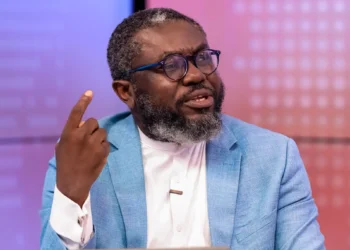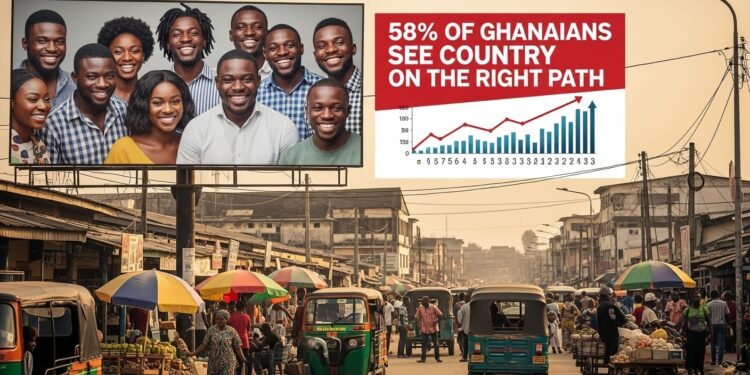A long-running debate has reignited in Ghana following the Supreme Court’s recent decision to overturn the Speaker of Parliament’s declaration that four parliamentary seats were vacant, drawing significant public and media attention.
This divisive ruling, handed down by a 5-2 majority on November 12, highlights a major constitutional conflict and raises questions about the balance of power between Ghana’s Judiciary and Legislature.
The ruling declaring the Speaker’s decision to be unconstitutional has divided opinions among legal experts, activists, and the public, with many questioning whether the Supreme Court should have jurisdiction over what they view as internal legislative matters.
Central to this debate is whether the judiciary should intervene in the affairs of Parliament or if such matters should remain within the legislative sphere.
Dr. Justice Srem-Sai, a renowned legal practitioner and lecturer at the University of Ghana School of Law, in scathing critique, underscored the complex nature of the separation of powers in Ghana. He stressed that while Parliament and the Judiciary have distinct roles, they are interlinked.
Dr. Srem-Sai pointed out that the Constitution is a blend of legal and political elements. He noted that Parliament’s primary role is political, focusing on policy-making and representing the public’s will, while the Judiciary’s role is to interpret the Constitution in legal disputes.
“See, the Constitution has both legal elements and political elements. Parliament is for politics. They deal with the political aspect of the constitution.
“The courts are for law. Theirs is the legal aspect of the constitution. It is pseudo-jurisprudential for any Supreme Court to come to believe that everything about the Constitution or governance is law.”
Dr. Justice Srem-Sai, a lecturer at the University of Ghana School of Law
A Political-Legal Divide Within the Constitution
This division implies that boundaries between the two should be respected, especially concerning parliamentary procedures. Dr. Srem-Sai argued that the Supreme Court risks overstepping its role when it interferes in matters such as parliamentary seat vacancies, which he believes should be managed by Parliament.
Dr. Srem-Sai’s critique also raised concerns about judicial overreach. He warned that if the Supreme Court is perceived as intervening in legislative issues, it risks being seen as taking political sides rather than acting as an impartial legal authority.
“It is misguided for any Supreme Court to think everything related to governance or the Constitution is strictly legal,” he remarked, implying that the Court’s interpretations might sometimes be swayed by political biases, especially if such decisions appear to favor one political faction.

He highlighted that perceived bias could erode public trust in the judiciary with him asserting that unlike Parliament, which derives legitimacy from elections, the judiciary’s power comes from its perceived fairness and neutrality.
According to him, the enforcement of its rulings depends on the cooperation of the executive and legislative branches. “The court stands to lose the most,” he added, pointing out that its weakness lies in its unelected status and reliance on political will for the enforcement of its judgments.
Maintaining Balance and Respecting Boundaries
Dr. Srem-Sai’s observations reflect a larger concern about the vulnerability of judicial power and the potential damage to its impartiality. By engaging in political matters, the judiciary risks losing the public’s perception of it as an unbiased institution.
The Supreme Court’s recent ruling has prompted calls to reassess the balance of power in Ghana. For Dr. Srem-Sai and other legal experts, the solution involves the judiciary taking a more restrained approach that respects parliamentary processes.
Ghana’s democracy relies on a clear separation of powers, where each branch has a distinct role that should not overlap. Although the Constitution provides checks and balances, all branches must show restraint and avoid intruding into each other’s areas of authority.
Dr Srem-Sai’s analysis aligns with those who believe that the Supreme Court should approach cases involving Parliament with caution. Critics argue that involving itself in legislative procedures risks drawing the judiciary into political disputes, threatening its impartiality and weakening its authority.
As Ghana continues to navigate its democratic path, the independence and credibility of its institutions are essential. While the Supreme Court’s role as interpreter of the Constitution gives it significant power, it must wield this carefully to maintain public trust.
Dr Srem-Sai’s argument underlined the importance of distinguishing between legal and political responsibilities, cautioning that judicial intervention in politics can harm its role as a neutral arbiter.
READ ALSO: Springfield Nears Completion of Afina Well Appraisal Drilling























